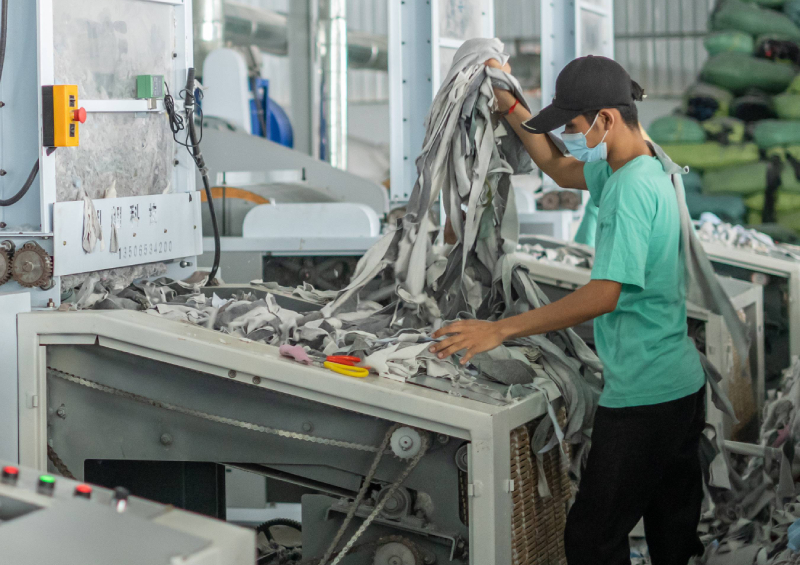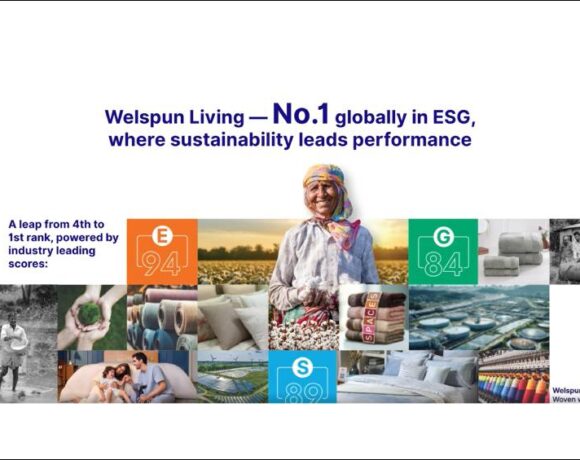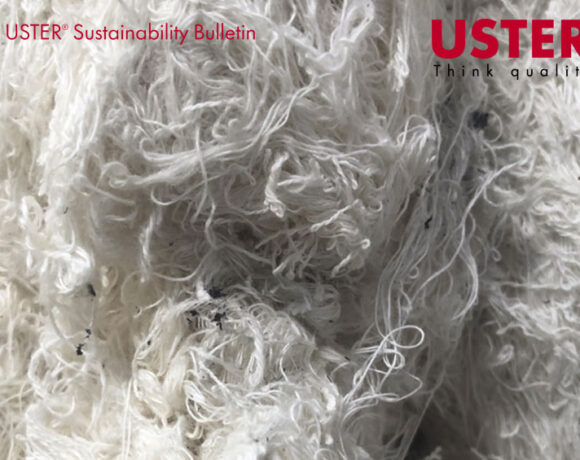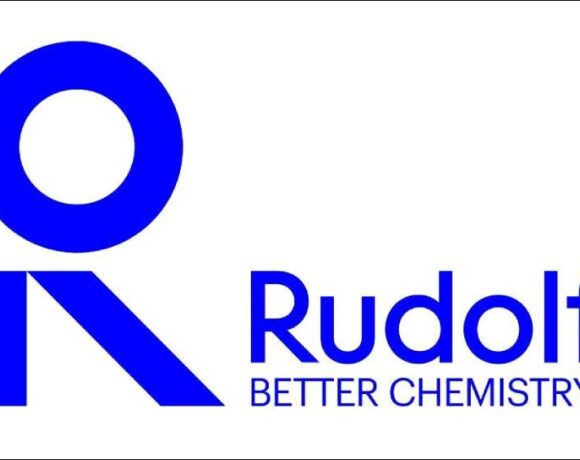Sustainability Report Unveils Roadmap To Promote Circularity In Cambodia’s GFT Sector

A comprehensive Sustainability Recommendation Paper (SRP), jointly developed by GIZ Fabric Cambodia and Global Fashion Agenda (GFA), has unveiled a roadmap for promoting textile waste management and recycling in Cambodia’s vital garment, footwear, and travel goods (GFT) sector. The report, supported by the German Federal Ministry for Economic Cooperation and Development (BMZ), emphasizes the urgency of adopting circular economy principles to ensure environmental sustainability, strengthen competitiveness and safeguard the future of the sector.
Key Highlights:
- Transition to a circular economy
The GFT sector, a cornerstone of Cambodia’s economy and its largest employment provider, generates an estimated 136,151 tonnes of post-industrial textile waste (PITW) annually. With Cambodia approaching its graduation from least developed country (LDC) status, the paper stresses the need to move from the current linear model of “take-make-dispose” to a circular paradigm where waste is treated as a resource. - Government initiatives and recommendations
The Cambodian government has laid foundational policies like the GFT Sector Development Strategy, National Strategic Plan on Green Growth, and the Circular Economy Strategy and Action Plan. However, challenges in effective implementation and inter-ministerial coordination persist. The SRP recommends practical steps, including:
- Developing robust recycling infrastructure, including centralized sorting hubs.
- Improving data collection and traceability to monitor PITW flows.
- Refining tax and trade regulations to incentivize formal waste recycling practices.
- Enhancing waste segregation at source to improve recyclability.
- Collaborative action across stakeholders
The paper underscores the necessity of collaboration between government bodies, international buyers, manufacturers and waste management companies. Recommendations for the private sector include adopting automated cutting technologies, setting circularity targets and improving waste segregation and traceability. International brands are encouraged to align sourcing practices with sustainability goals, support local recyclers and establish extended producer responsibility (EPR) schemes. - Insights from a successful pilot project
The GIZ Fabric Cambodia Textile Waste Pilot has demonstrated the feasibility of circular practices. Operating in 21 garment factories, the pilot diverted over 3,000 tonnes of textile waste from landfills, with 932 tonnes recycled into new yarn for export. Training programmes enhanced waste segregation quality, reaching an average sorting rate of 65%. These results showcase the potential for scaling up initiatives nationwide. - Global context and learnings
The report draws on international examples, including Bangladesh’s Circular Fashion Partnership and India’s Sorting for Circularity initiative, to highlight best practices in textile recycling. It also references evolving global regulations like the EU Corporate Sustainability Due Diligence Directive and the German Supply Chain Act, which demand higher environmental and social accountability from supply chains.
Challenges to address
Despite progress, significant barriers remain, including:
- Dominance of informal waste management hindering transparency and compliance.
- High energy costs deterring investments in recycling technologies.
- Limited awareness and behavioral resistance to circular practices within factories.
Way forward
To scale efforts, the paper proposes launching a Circular Fashion Partnership modeled after a successful initiative in Bangladesh. This partnership aims to foster collaboration, promote policy advocacy and integrate circular principles into Cambodia’s GFT sector. By embracing sustainability, Cambodia can position itself as a leading destination for environmentally conscious buyers while contributing to global climate goals.
This detailed SRP is a call to action for stakeholders at all levels to work collectively towards a sustainable future for Cambodia’s GFT sector, ensuring its resilience in a competitive global market.














